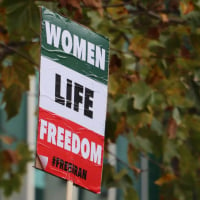Attention: Please take a moment to consider our terms and conditions before posting.
Money

BDL
Posts: 6,038
If I had a Monkey in my pocket, lost a Pony on a nag,found a commodore in the street, spent a bullseye on the new away strip (OI HENRY!!), bet a nifty and got back a bag of sand in winnings .
How much do I have?
How much do I have?
0
Comments
-
not sure, but the first round is on you down the rub a dub0
-
£1395?0
-
does the bag of sand you got back include the nifty stake as well?0
-
A pony is 25 quid, right?
So all the others are cockney words for various amounts of money?0 -
£1645?0
-
i think tommo is right.0
-
a Lady Godiva?0
-
You going to put us out of our misery BDL?0
-
I am half asleep - I just added them all up and most probably got that wrong.
I will go back to cuckoo land .....0 -
A nifty = £50.
A bag of sand = a grand.
Pony = £25
Commodore = £15
Monkey = £500.
Bullseye = £50.
So you should have £1490 in your pocket (not taking tax into account), based on you starting with £500, you then lost £25 on a punt (taking your total down to £475), but you then found £15 making your sub total £490, you bet £50 on a horse, won £1000, with the stake money back you should end up with £1490.
As an aside £500 is known as a monkey because troops who came back from India used a 500 rupee note which had a picture of a monkey on it. In India they referred to a 500 rupee note as a 'monkey' and the expression returned with them to Britain. Supposedly the expression pony for £25 has the same origin, the 25 rupee note had a horse or pony on it.0 -
Sponsored links:
-
certainly somehere between a Rio and an Archer, I make it the number of minutes in a day (1440)
assuming you get your nifty back on top of the bucket of sand0 -
he had £500, lost £25, found £15, spent £50, bet £50, won £1000.
i'm going to say £1440 in his pocket as he would have got his £50 stake back in addition to his winnings. i'm probably wrong mind you!0 -
then what about the commodore, because when i read that i naturally presumed it was £64 !!0
-
Commodore = 3 x a lady ( fiver )0
-
Three times a lady (godiva) lol.
Just googled it!
Just beat me to it Shag0 -
Yep is £1440, I forgot to take into account the money spent on the new strip.0
-
but he got back a bag,rather than £10500
-
Commodore is £15. Something to do with the song 3 times a lady.
Edit - Last again........0 -
 0
0 -
Buggered if I know the answer!0
-
Sponsored links:
-
can we start a 'let's kill BDL thread' ; 0 )0
-
Isn't a Gorilla £750 (a monkey and a half)?0
-
And for our older readers some pre-decimal slang words that I can remember (I was only 8!)
Half a doller
two and a kick
a Doller
A tanner
A bob
A joey
A nicker
Go on, have a guess.0 -
if you brought the new shirt with VG you would get 10% off
 0
0 -
[cite]Posted By: Henry Irving[/cite]And for our older readers some pre-decimal slang words that I can remember (I was only 8!)
Half a doller
two and a kick
a Doller
A tanner
A bob
A joey
A nicker
Go on, have a guess.
Can I have a go, Henry?
Or am I disqualified because I was there? ;-)0 -
[cite]Posted By: guinnessaddick[/cite]if you brought the new shirt with VG you would get 10% off

BDL would get 15% staff discount.0 -
please do Oggy. These kids won't know ; - 00
-
Okay, Henry........here goes:
Once upon a time, when Charlton Athletic were descending from nationwide fame into a moribund basket case, and the sun was setting on Great Britain and the ragged remains of it's Empire, such essentials as entry to The Valley, The Beano and 'Sky Ray' ice lollies were purchased with 'real' money.
Half a dollar: 2/6d -Two shillings & sixpence (12 and a half p)
two and a kick: ditto
a Dollar: 5/- Five shillings - 5 bob (25p)
A tanner: Sixpence 6d (2 and a half p)
A bob: One shilling 1/-
A joey: Threepence - froopney bit (3d)
A nicker: Quid
Do I get a prize, Henry?0 -
Oi Henry, where's my prize? ;-)
You forgot the '2 bob bit' - or what my nan called a 'florin'.
And the 'ape-ney' - a halfpenny.
And the brown 'ten bob note' - 10 shillings paper money ( 50p)
If something didn't seem quite right, we used to say it seemed "as bent as a 9 bob note"0 -
You win a prize but I'm not sure what it is yet.
My dad always said "Bent as a nine bob note" about both things a but dodgy and "irons" as he called them in those less than PC days.0







